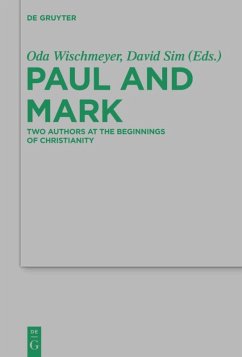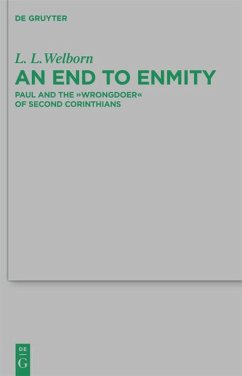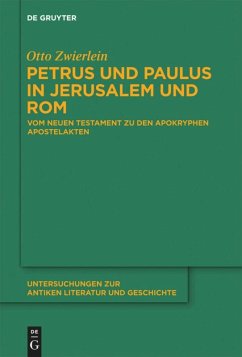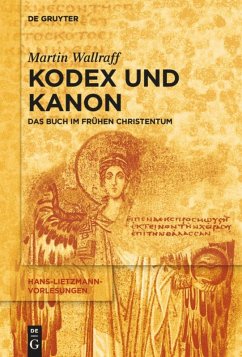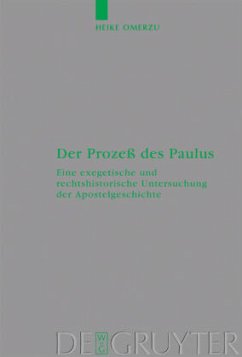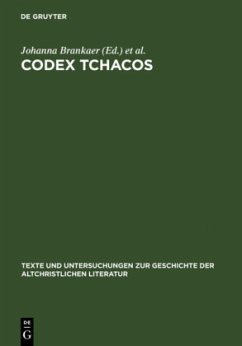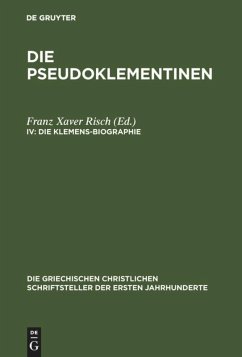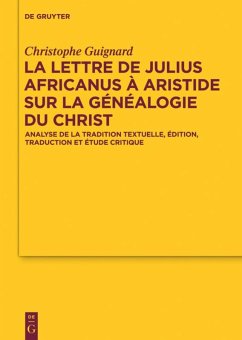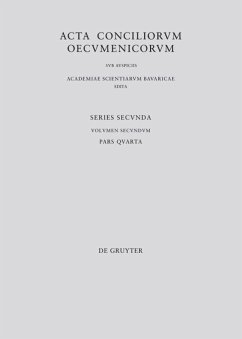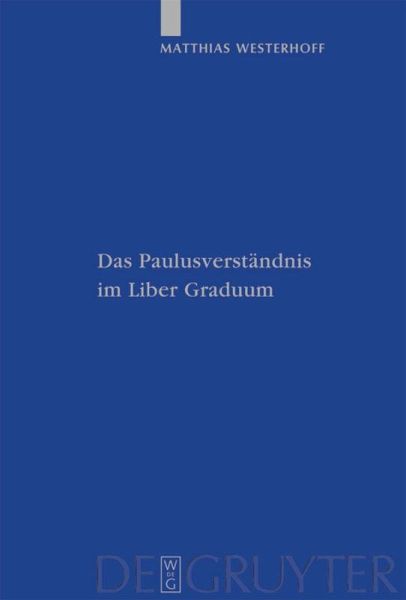
Das Paulusverständnis im Liber Graduum

PAYBACK Punkte
0 °P sammeln!
The anonymous author of the Syriac Book of Steps, a contemporary of St. John Chrysostom, is more deliberate than his predecessor, Aphrahat, in portraying the Apostle as the authentic interpreter of Christ. The author is retrospective in his attempt to re-establish the purity of the ideal of the itinerant teacher by appealing to the example of the Apostle, and at the same time forward-looking when he teaches a non-mythological understanding of faith based on the antithesis of the old and the new; he remains a lone voice, who as a preacher sees himself committed to the Apostleâ??s suffering.
Mit seiner asketischen Paulusexegese, die in dem Apostel das Bild des Vollkommenen erblickt, bewegt sich der anonyme Autor des Liber Graduum, ein Zeitgenosse des Johannes Chrysostomos, zunächst im Rahmen der Paulusrenaissance des ausgehenden vierten Jahrhunderts. Originalität erweist er darin, dass er in dem Apostel den Prototyp des bekehrten Sünders erkennt und vor allem darin, dass ihm die paulinische Antithetik zum Anlass einer strikt antithetischen Systematisierung von Glauben und Ethik wird. In der Unterscheidung von Altem und Neuem Testament, von Gesetz und Evangelium, und in der Stufung der persönlichen Vervollkommnung vom Kinde bis zum Manne erweist sich der Autor als schärferer Denker im Vergleich zu den harmonisierenden Alexandrinern. Die Gegensätze fallen in dem Gottesbild zusammen, das, dem Apostel vergleichbar, die Härte der Irrationalität nicht scheut.
Seine Verhaftung am altsyrischen Ideal des weltverneinenden Wanderlehrers lässt ihn allerdings das Recht, das der Apostel der Sexualität, dem Besitz und der staatlichen Autorität einräumt, nicht wahrhaben.
In der Maxime des "allen alles werden" lehrt der ungenannte Prediger, dem der Apostel als der authentische Ausleger des Christus gilt und der das apostolische Leiden dem Wunder vorzieht, gleichwohl ein weltoffenes Christentum, das sich von ausgrenzender Kirchlichkeit unterscheidet: In jedem Sünder darf potentiell ein Paulus vermutet werden.
Seine Verhaftung am altsyrischen Ideal des weltverneinenden Wanderlehrers lässt ihn allerdings das Recht, das der Apostel der Sexualität, dem Besitz und der staatlichen Autorität einräumt, nicht wahrhaben.
In der Maxime des "allen alles werden" lehrt der ungenannte Prediger, dem der Apostel als der authentische Ausleger des Christus gilt und der das apostolische Leiden dem Wunder vorzieht, gleichwohl ein weltoffenes Christentum, das sich von ausgrenzender Kirchlichkeit unterscheidet: In jedem Sünder darf potentiell ein Paulus vermutet werden.





